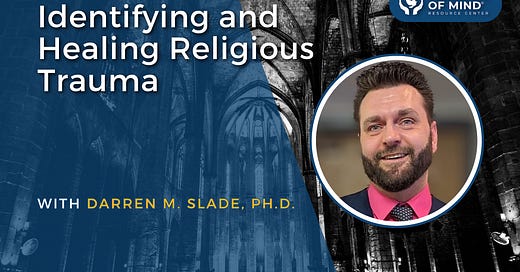Identifying and Healing Religious Trauma, with Darren M. Slade, Ph.D.
On the Influence Continuum podcast, I cover all kinds of cults: from family units to political movements, toxic workplaces to Scientologist compounds. Today, I returned to the basics of Christian fundamentalism used by cultic groups. As I discuss in my book, The Cult of Trump, many groups are deeply involved in politics and influence believers to vote according to the leader’s direction of who is “godly.” Here to discuss his experiences with this and his evolution away from religion is Dr. Darren M. Slade, a graduate of the controversial Liberty University’s seminary and apologetics program.
Keep reading with a 7-day free trial
Subscribe to Dr. Steven Hassan to keep reading this post and get 7 days of free access to the full post archives.





